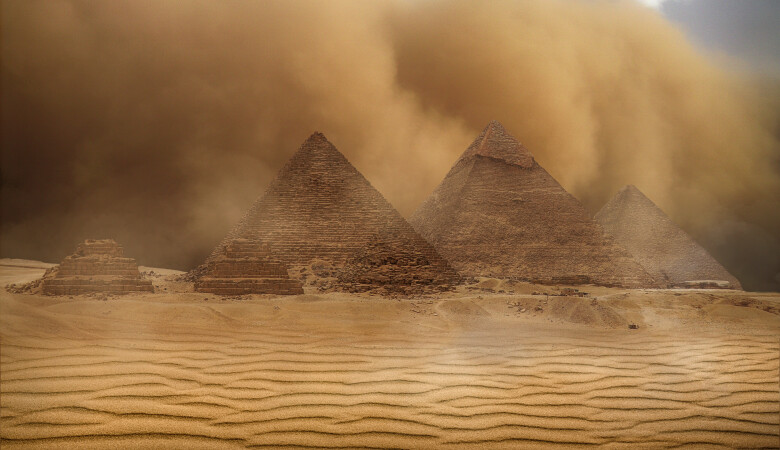God's Lavished Grace Tragically Rendered Fruitless (Isaiah Sermon 4 of 80)
May 11, 2008 | Andy Davis
Isaiah 5:1-30
Forsaken Love, Grace, Providence and Sovereignty of God
Andy Davis preaches a verse by verse expository sermon on Isaiah 5:1-30. The main subject of the sermon is the tragic abuse of God's grace and patience.
- SERMON TRANSCRIPT -
Introduction
In 2 Corinthians 6:1, I find a mysterious and troubling verse. It says, “As God's fellow workers, we urge you not to receive God's grace in vain.” Receiving God's grace in vain is a very troubling concept, and I think it is easily misunderstood. Now, God's grace comes to us in a variety of ways. It is by grace that God causes the sun to rise and the rain to fall on sinners whether they acknowledge him or not. It is by grace that we enjoy food, clothing and shelter. It is by grace that we are born into families and to mothers that nurture us, love us and provide for our every need. It is by grace that we enjoy warm human friendships. It is by grace that we look out over a natural beauty, such as a rolling ocean or a field of wild flowers or craggy mountain heights, and see that spectacular beauty. It is by grace that we get an education. It is by grace that we have formative experiences that shape us, that we can read and write and do arithmetic.
It is by grace that we enjoy every good and perfect gift, for they all come down to us from the Father above unto people who deserve his wrath. It is by grace that we experience all of these things. But all of these forms of grace can be received in vain, every one of them. If we fail to make the most of our opportunities, if we rebel, if we follow a lifestyle of sin, we have received all of those forms of God's grace in vain. Now, we believe in the new covenant, in something called effectual grace. It is a grace from God that cannot be received in vain. It is by grace, or it was by grace that Lazarus was raised from the dead. He could not receive that grace in vain. He had no choice but to live again. It was by grace that the man who was born blind received his sight. When he washed off the mud, his eyes had no choice but to see perfectly. It was by grace that Peter understood that Jesus is the Christ, the Son of the living God. He could not receive that grace in vain. And it is by grace that every true Christian in history is born again by the Spirit of God, by grace that the heart of stone is removed and the heart of flesh is given.
It is by grace that we see the light of the knowledge of the glory of God in the face of Christ and live forever. "For it is by grace you have been saved through faith – and this not from yourselves, it is the gift of God - not by works, so that no one can boast" (Ephesians 2:8-9). Every spiritual advantage there is in this life comes to us by grace, but it is possible for a person to waste those advantages. Isaiah 5 speaks of lavish gifts of God's grace, bestowed from the kindness and covenant faithfulness of almighty God on the nation of Judah and the city of Jerusalem. And these people perverted the good gifts of God and used them for sin. This passage therefore speaks a word of warning to all ages, and it speaks a word of warning to us, the American Evangelical church, and we ought to heed it.
No church in history has had as many spiritual advantages as has the church in America, as many Bibles in the wide variety of translations, as many good seminaries teaching the truths of the word of God, as many avenues of right doctrine, publishers, book distributors, internet resources, good preaching on tapes and CDs, and MP3 and streaming. As many opportunities to serve the Lord in short and long-term missions. As many good Bible believing and Bible preaching churches. And yet for all the avalanche of God's grace, it is amazing to observe how little genuine fruit there is here. Dr. Robert Coleman, who travels the globe constantly and understands the church, perhaps better than most, was having a conversation with Raymond Ortlund, and Ortlund wrote it down. This is what he said. "In the previous fifteen years, real church growth in North America has been zero percent, and yet the church in Asia and Africa and Latin America has been growing by leaps and bounds. Despite all of these lavish resources, zero net growth. Lots of activity, lots of programs, but so little fruit."
Now, Robert Coleman wrote a famous book, The Master Plan of Evangelism. In it he talks about the pattern that Jesus gave of deep discipleship for the purpose of spiritual multiplication. He said it was the strategy by which God intended to reach the world. Now, if you were able to preach to 100,000 people every day, and got a four percent return on the preaching, after sixteen years you would see 23,360,000 people converted - 100,000 every day. Now that's a busy life. A four percent response is very good for people to actually come to faith in Christ. But suppose instead you took one convert, and for six months you built a disciple who could reproduce, and then each one built another, and then the four each built another and so on and so on. After sixteen years, you would reach four billion people. Four billion in sixteen years.
Multiplication begins small but ultimately yields greater results. And these are genuine disciples, Christians growing and maturing, not babes in the faith demanding constant nurturing. So why hasn't that been happening? What is going on here? Well, there can be only one answer and that is sin. The sin of not receiving the grace of God properly. Receiving it in vain. We are in some sense receiving God's grace in vain because so little growth has been occurring. So much is invested and there is so little fruit. Now Isaiah 5 speaks a word of warning to us concerning this precise matter. Luke 12:48 says, "From everyone who has been given much, much will be demanded; and from the one who has been entrusted with much, much more will be asked." Friends, that is us. Let's be honest. That is us. God has entrusted much to us and He expects much back. And as we look in Isaiah 5, again, as I told you, I say it again and again. The great danger of reading Isaiah is to say, "Those people there, those people of Judah, those people of Jerusalem. How much they sinned." Don't do that!
I. God’s Lavished Grace: What More Could Have Been Done?
Isaiah’s Love Song for God
Look at Isaiah 5 and find a mirror and then we will deal with this passage properly. It begins with an account of God's lavish grace and the question, "What more could have been done?" in verses one through seven. And it begins amazingly with a love song. Isaiah sings a love song, a love song to God. Look what he says in verse one. "I will sing for the one I love a song about his vineyard. My loved one had a vineyard on a fertile hillside." This song must be the most tragic love song ever. The introduction shows Isaiah's love for God. A song for the one I love. He calls him my loved one. Now you know the first and greatest commandment, that you should love the Lord your God with all your heart and with all your soul and with all your mind and with all your strength. That is the first and greatest commandment. And Isaiah loves God. In this case then his love for God knits his heart together with God's as he looks at the tragedy of what's really happening with Judah and Jerusalem.
The Original Parable of the Vineyard
I think we have here the original parable of the vineyard. Now Jesus of course is going to take Isaiah 5 and change it a bit and speak a parable to His own generation. It is in Matthew 21:33 and following. Jesus said, "Listen to another parable. There was a landowner who planted a vineyard. He put a wall around it, dug a wine press in it and built a watchtower. Then he rented the vineyard to some farmers and went away on a journey. When the harvest time approached, he sent his servants to the tenants to collect his fruit." It's the same story - slightly different because they beat the messengers and eventually the master sends the son and they kill him, thinking to take his vineyard. But it is the same story as Isaiah 5. God's relationship with Israel was a long-term investment in a vineyard that ended in grave disappointment, in a failed crop, a harvest that never came.
God’s Lavished Grace
And so we see God's lavish grace. Look at it. First of all, it was a well-chosen site. It was on a fertile hillside. That's the promised land, a land flowing with milk and honey. Notice also the hard labor. He dug it up, cleared it of stones and planted it with vines and built a watchtower and a wine press. Lots of labor went into this.
I was raised in New England, and the farmland up there over the winter grows boulders. That's what it does. They just get pushed to the surface. And if farmers want to have arable land, they have to remove those boulders. It’s just backbreaking work. So, you see all over New England these stone walls around these farms, and they're very quaint. But they testify to backbreaking labor. I'm glad I'm not a New England farmer. That's all I can say. But God did that kind of labor. He did all that and more. He constructs a watchtower and he hews out literally a wine press. You get this idea of a huge rocky boulder and he is carving out a space in it where they can press that sweet wine that they are going to make, with those wonderful grapes that are going to come. Hard labor in preparation for the harvest, and it's skillfully tended. He knew his business. He knew what a fertile hillside was, and he knew the choicest vines. He knew how to do all of that. And it was diligently and forcefully guarded with a watchtower, always looking out for the enemy, protecting the tender vines from being trampled.
Summed up in verse three and four he says this, "Now you dwellers in Jerusalem and you men of Judah, judge between me and my vineyard. What more could have been done for my vineyard than I have done for it?” “What more could I have done?" God in effect is saying "I spared no expense. I left off no diligence to ensure a success. The fault does not lie with me."
Israel’s Wretched Harvest
But look at Israel's wretched harvest. Verse four, “When I looked for good grapes, why did it yield only bad?” Now this is the eternal question, the great unanswerable question when it comes to sin, when it comes to evil. Why? It just stands over the human race. It just haunts us. So many people in times of great tragedy ask God that question. They look up to heaven and they say "Why?" Perhaps it's the death of a little baby to leukemia or a death of a child in a car accident. A great tragedy. Unlooked for, unexpected, shocking. And they look up to heaven and they say to God "Why did you do it? Why God?" Alright. Those kinds of questions are asked in the Bible. The Psalmists asked them frequently.
But here it is the other way around. It is the other way around even more poignantly, I think. God stands over the wreckage of human sinfulness, the senselessness of it, the waste of it, the insanity of rebellion and he asks us, "Why? Why?" Ezekiel 33:11, "Say to them, 'As surely as I live,' declares the Sovereign Lord, 'I take no pleasure in the death of the wicked, but rather that they turn from their ways and live. Turn! Turn from your evil ways! Why will you die, oh house of Israel?'" Or the prophet Nathan confronting David with his sin of adultery with Bathsheba in 2 Samuel 12:9, "Why did you despise the word of the Lord by doing what is evil in his eyes?” Why? Jesus says to Saul of Tarsus on the road to Damascus, "Saul! Saul! Why do you persecute me?" (Acts 22:7). And so it is here. Despite all the skillful gardening of the Lord, still it produces only bad grapes.
God had given to the Jews every external grace.
- National election - they were chosen as a people, as a nation, for a purpose.
- The example of the Patriarch's faith - Abraham, Isaac and Jacob walking by faith.
- The events of the exodus, the leadership of Moses, called by God. And then the ten plagues, the crossing of the Red Sea, Mount Sinai, God descended. They heard the voice of God speaking out of the cloud the Ten Commandments.
- And then, the sacrificial system with all of its rich imagery of sin atoned for, of reconciliation, of all of those things.
- The promised land miraculously cleared, cleared of all the Canaanites and Hittites and Jebusites and Hivites, Perizzites. Cleaned, a land flowing with milk and honey.
- Then the lessons of national sin and repentance in the Book of Judges, that cycle of sin and how God would chastise them and then they would be brought back again to repentance. That whole thing.
- Then the example of godly King David. All of this grace, grace upon grace, lavishing grace upon Israel.
- The wall of protection around it. God protected his people.
- The ministry of godly prophets like Elijah and Elisha, God speaking to them.
Yet for all of these incredible advantages, there is still overwhelming national and individual sin. Why? It is the great unanswerable question. Sin is so irrational, so inexplicable, so insane. God is very clear about what those bad grapes were. He spends the rest of the chapter describing it. First, right away in verse seven he says this, "The vineyard of the Lord Almighty is the house of Israel, and the men of Judah are the garden of his delight. And he looked for justice but saw bloodshed; for righteousness, but heard cries of distress." Despite all the advantages of his skillful tending, look what he gets. He gets injustice. He gets bloodshed. He gets cries of distress from his people. That's what he gets. And for the rest of the chapter, we will see that he lays out six clusters of bad grapes.
The central lesson here is the corruption of the human heart. Short of the miraculous transformation of the new birth, every external grace only hardens us more. Makes it worse, actually. If God doesn't change your heart, the hearing of good preaching actually makes it worse for you. For it says in Jeremiah 17:9, "The heart is deceitful above all things and beyond cure. Who can understand it?" The only possible hope is the new heart, a new nature, regeneration by the Spirit of God. Now God asks here, "What more could have been done?" (verse 4). God himself gives his own answer in the new covenant. There is something more that could have been done. He can take out the heart of stone and he can give the heart of flesh. Without that there is no hope. It says in Ezekiel 36:26, 27, "I will give you a new heart and put a new spirit in you; I will remove from you your heart of stone and give you a heart of flesh. And I will put my Spirit in you and move you to follow my decrees and be careful to keep my laws."
And so the events of Jewish history prove this. No matter how many external blessings God lavishes on unregenerate people, they only harden our hearts more. If God does not add to them the great blessing and grace of a changed heart, we will only heap up our condemnation more and more.
God’s Shocking Judgement
So, God sends a shocking judgment. Look in verse five and six. “Now I will tell you what I am going to do to my vineyard: I will take away its hedge, and it will be destroyed; I will break down its wall, and it will be trampled. I will make it a wasteland, neither pruned nor cultivated, and briers and thorns will grow there. I will command the clouds not to rain on it.” That is the judgment of God on Israel and on Judah.
II. Six Clusters of Bad Grapes (verses 8-23)
So, for the rest of the chapter, we see six clusters of bad grapes and the corresponding judgments that come. "Woe" is a word of prophetic warning. The chapter then can be arranged around the six woes that the prophet speaks.
Woe #1: Aggressive greed (vs. 8-10)
Look at what it says in verses eight through 10. “Woe to you who add house to house and join field to field till no space is left and you live alone in the land. The Lord Almighty has declared in my hearing, ‘Surely the great houses will become desolate, the fine mansions left without occupants. A ten-acre vineyard will produce only a bath of wine, a homer of seed only an ephah of grain.’” These were economic empire builders, ruthlessly taking over the property of the poor and the needy. Like evil King Ahab who has Naboth murdered so he can steal his vineyard and take it over. Or like the Pharisees of Jesus's day. Jesus talks to them about this. They used their influence to steal widows' houses and to make themselves wealthy in this way.
Woe #2: Sinful Excess (vs. 11-12)
“Woe to those who rise early in the morning to run after their drinks, who stay up late at night till they are inflamed with wine. They have harps and lyres at their banquets, tambourines and flutes and wine, but they have no regard for the deeds of the Lord, no respect for the work of his hands.” Now Israel was rife with idolatry and the core of idolatry, self-worship. The allure of idolatry is always sensual pleasure. Sensual pleasure, living for sensual pleasure rather than for God. These folks are dedicated to it. They are dedicated to pursuing excess. They rise up early in the morning to run after their drinks. These are words of great zeal and dedication, rising early to run after the drinks. To run after them. This is determination. This is sacrifice. This is commitment to a lifestyle of drinking.
What are they pursuing? They are pursuing drinks. They are pursuing getting drunk. They are pursuing music to enjoy a good tune, tambourine and a harp and a lyre. Ah, the delights of good music and a good bowl of wine! That's what they are pursuing with great dedication, and their addictive lifestyle comes from trying to fill an empty hole in the center of their souls, something that will ease the pain of that emptiness. The result is utter deadness to the glory of the Lord all around them. “They have no regard,” it says, “for the deeds of the Lord, no respect for the work of his hands.” They are just numb to what God is doing.
Woe #3: Shameless Sin and Mocking of God (vs. 18-19)
“Woe to those who draw sin along with cords of deceit, and wickedness as with cart ropes, to those who say, 'Let God hurry, let him hasten his work so we may see it. Let it approach, let the plan of the Holy One of Israel come, so we may know it.’” The image is powerful. It's like these people are beasts of burden and they have ropes around them and they are hauling a cart loaded with boulders of sin. And they are just pulling it on. They are in bondage to sin and they can't break away. And yet, in the midst of that, they are mocking God. "Oh, that plan of God that He always talks about, let him bring it so we can see it and actually see whether it's going to happen or not."
Woe #4: Relativism and Redefining of Truth (vs. 20)
"Woe to those who call evil good and good evil, who put darkness for light and light for darkness, who put bitter for sweet and sweet for bitter." Long before the theory of relativity, and long before philosophical relativism, and certainly long before the post-modern era, there was this redefining of truth, this redefining of what is good and evil, what is light and dark, what is sweet and bitter. There is nothing new under the sun, friends. This has been going on forever. Naming was a task given to Adam. Adam could name the animals. He could name different things. But defining good and evil? That is God's job. It is our job to just accept from him what he says is good and evil. He said right from the beginning in Genesis 1:3-5, "And God said, 'Let there be light,' and there was light. God saw that the light was good, and he separated the light from the darkness. God called the light 'day,' and the darkness he called 'night.' And there was evening, and there was morning - the first day." God alone has the right to define good and evil. He is the standard. We don't make it up inside ourselves.
Nowadays, people have become experts at redefining good and evil. After the Supreme Court upheld the limited ban on partial birth abortion, which is a disgusting procedure which I shall not recount here, Justice Ruth Bader Ginsburg called the decision alarming. She called the decision alarming! The procedure was not alarming to her. The decision was alarming. "Woe to you who call evil good and good evil, who put light for darkness and darkness for light, who put sweet for bitter and bitter for sweet." We can't exchange these things just because we name them something different. They are what they are. Good is good and evil is evil.
Woe #5: Arrogant False Wisdom (vs. 21)
“Woe to those who are wise in their own eyes and clever in their own sight.” I think we all spend some time here. “Wasn't that clever of me? Wasn't I smart to do that?” This kind of thing. This is a very convicting verse for anyone tempted in that direction. To fall in love with your own intellect. Would you like to play chess with God? You'll lose. We have a lot of smart people in this church. I know a lot of smart people. I went to college with smart people. Nobody compares with the omniscient God, and we ought to be humble in His presence. Amen? We ought not to be wise in our own eyes or clever in our own sight. But here are these people. And it is even more tempting for us, as we are technologically advanced people. We're really in love with the things we discover and invent and make happen.
Woe #6: Drunken, Corrupt Justice System (vs. 22-23)
We're back to the wine again. And it says, “Woe to those who are heroes at drinking wine and champions at mixing drinks, who acquit the guilty for a bribe, but deny justice to the innocent.” One of the fundamental functions of government is to assure justice for all its citizens, so that neither rich nor poor get any preferential treatment, but that everyone will be judged fairly. The image of this in our Supreme Court building is of justice personified, a blindfolded woman who is holding a scale and a sword. And the ideal there is you will get justice here, no preferential treatment. The law will be upheld, and if need be justice will be meted no matter who you are. That is what the foundation of a good judicial system is.
But in Isaiah's day, the judges love the same lush life we talked about earlier, only they are really good at it. They are champions at mixing wine. "World champion wine mixer!" I wonder if they gave out trophies? It's a sense of, "What a hero I am at mixing wine." But look what they are doing with it. They're denying justice to the innocent. They're selling their services to the highest bidder with bribery.
So, we have a six-fold woe clearly depicting the corruption of Israel. And now with the sin clearly exposed, the corresponding judgment comes. And it comes centered around another word, the word "therefore." "Woe to them, therefore." There is a direct connection between the word "woe" and the word "therefore." Each of the "woes" describes a horrendous sin pattern on the part of God's people. And each of them results in a corresponding "therefore," which is the reasonable justice of God.
III. Therefore… Judgement Comes (verse 13-17, 24-30)
“Therefore” = The Reasonable Justice of God
- Therefore number one, verse 13: “Therefore my people will go into exile for lack of understanding."
- Therefore number two, verses 14 and 15: “Therefore the grave enlarges its appetite and opens its mouth without limit; into it will descend their nobles and masses with all their brawlers and revelers.”
- Therefore number three, verse 24: “Therefore, as tongues of fire lick up straw and as dry grass sinks down in the flame, so their roots will decay and their flowers blow away like dust.”
- Therefore number four, verse 25: “Therefore the Lord's anger burns against his people; his hand is raised and he strikes them down. The mountains shake, and the dead bodies are like refuse in the streets.”
Basic Sin: Rejecting God’s Word (vs. 24)
Now the basic sin, the root sin, I think, is in verse 24. Look at it. “They have rejected the law of the Lord Almighty and spurned the word of the Holy One of Israel.” This is the core issue, rejection of the Word of God. This is the foundational sin. In fact, I think it is impossible to sin apart from the Word of God. God's Word comes first; sin comes after. For “where there is no law there is no transgression” (Romans 4:15). Where God has spoken we must obey.
Now, the sin nature seizes hold of the good commandments of God, (Romans seven), and uses them for evil, because we are all born under Adam's original sin. And we turn the good laws of God into corruption and we sin. That is what the people of God did here. It is an awesome thing then, to spurn the Word of the Lord. By God's Word he created heaven and earth. By God's Word he filled the seas and the skies and the land with various living creatures. By God's Word he saves souls. By the Word of the gospel and by God's Word, he condemns souls. Therefore, the most important thing a human being can do is to tremble at God's Word and cling to it as to your very life. Isaiah 66:2: "This is the one I esteem: he who is humble and contrite in spirit, and trembles at my word."
Resultant Judgments
Well, the resulting judgments are listed here.
- There is exile - the people are going to be evicted from their land, the northern kingdom to Assyria, the southern kingdom a century and a half later to Babylon. Verse 13: "My people will go into exile." That's what he is going to do.
- Death, verse 13 and 14: "Their men of rank will die of hunger and their masses will be parched with thirst. Therefore the grave enlarges its appetite and opens its mouth without limit; into it will descend their nobles and masses with all their brawlers and their revelers [down into the grave]."
- Humbling, verse 15: "So man will be brought low and mankind humbled, the eyes of the arrogant humbled."
- Then there are decay and dust. Look at verse 24. "As tongues of fire lick up straw and as dry grass sinks down in the flames, so their roots will decay and their flowers blow away like dust." These are human achievements. They are great buildings. They are works of arts and literature. All of their achievements are dust in the wind. All of it gone. How? How does he do it? Primarily through invasion.
- Invasion, an army is coming. Again and again, God threatens the central judgment. The invasion of foreign gentile powers. Now, other chastisements are available to God and he uses them. There are drought and famine as in the days of Elijah. There are locusts as in the days of Joel. There is plague as in the days of David and the sinful census. He can do all of that. But the biggest threat of all has always been at the human level, invasion by a foreign power. God used it again and again in the book of Judges. He uses the Philistines to chastise his people in the days of Eli. He does this again and again.
The Invading Army Described (vs. 26-30)
The invasion by the Assyrians. And a century and a half later, the Babylonians finish the people of God in the Promised Land until the restoration came. And the invading army is described. Look at it in verses 26 through 30. "He lifts up a banner for the distant nations, he whistles for those at the ends of the earth. Here they come, swiftly and speedily! Not one of them grows tired or stumbles, not one slumbers or sleeps; not a belt is loosened at the waist, not a sandal thong is broken. Their arrows are sharp, all their bows are strung; their horses’ hooves seem like flint, their chariot wheels like a whirlwind. Their roar is like that of a lion, they roar like young lions; they growl as they seize their prey and carry it off with no one to rescue. In that day they will roar over it like the roaring of the sea." Here they come, the invading armies.
Yet for All of This… His Hand is Still Upraised (vs. 25)
And yet for all of this, he says in verse 25, "His anger is not turned away, his hand is still upraised." He is going to use this expression again and again in chapter 9 and 10. "Yet for all of this, his anger is not turned away, his hand still upraised." He has more anger to give. God is slow to anger but when the time comes, it is very hard to turn aside. For all of this. Now, this is a terrible judgment, invasion by a foreign power. Oh, but there's a far worse one. "Do not fear those who kill the body and after that there is nothing they can do. I'll tell you who to fear, fear the One who has power to destroy both soul and body in hell. Yes, I tell you, fear him!" said Jesus. This is a dreadful word to hear. "Depart from me, you who are cursed, into the eternal fire prepared for the devil and his angels" (Matthew 25:41). That is what you should fear, even more than the invasion of a foreign power.
IV. The Sweet Fruits of God’s “Alien Task” of Judgment (verses 16-17)
Judgment is God’s “Alien Task”
Now, in the middle of all of this, strangely, are the sweet fruits of God's alien task. Look at verses 16 and 17. "But the Lord Almighty will be exalted by his justice, and the holy God will show himself holy by his righteousness. Then sheep will graze as in their own pasture; lambs will feed among the ruins of the rich." Well, there had to be a glimmer of light in the midst of all of this darkness, and so there is. First of all, understand, judgment is God's alien task. We will learn that later in Isaiah, but I am going to quote it now. Isaiah 28:21: "The Lord will rise up…, he will rouse himself… to do his work, his strange work, and perform his task, his alien task." What is he saying? God is good. He is loving. This isn't what he wants to do but he will do it. But it is his alien task. It is his strange work to do this. Though God delights in the end result of all this judgment, he doesn't delight in the judgment itself. He doesn't take pleasure in it. Like Jesus's crucifixion, like his death on the cross. He did it for the joy set before him. And so also, God brings judgment on his people for the good things set before him.
The Lord Almighty Exalted and Displayed
And what are they? Two in particular. Number one, God is put on display. His holiness is put on display. His justice is put on display for all to see. Look at verse 16. "The Lord Almighty will be exalted by his justice, and the holy God will show himself holy by his righteousness."
Sheep Peacefully Grazing
Secondly though, there are the sheep. Look at them in verse 17. "Then sheep will graze as in their own pasture; lambs will feed among the ruins of the rich." Pardon me if I see the sheep of Jesus Christ here. But Jesus said, "My sheep listen to my voice, I know them and they follow me" (John 10:27). Now I don't deny that there was a physical fulfillment, that when all the people were kicked out the lambs had the run of the place. And so they did. They could graze over the ruins and the wreckage, and they could just eat and be at peace and no one bothered them. And I don't doubt, as it says in 2 Chronicles 36:21, that the land enjoyed its sabbath rest, seventy years of rest. So, everything was peaceful and all that, but this is just a picture, friends. It is a picture, can't you see it, of lambs quietly walking over a safe ground where no enemy will make them afraid. Friends, this is the new heaven and the new earth. This is where we are heading - full restoration where there will be no danger anymore. Oh, that's what we're pointing toward!
V. The Gospel of Christ: Consummation of These Themes
Sovereign Grace that Produces Its Own Harvest
And therefore, in the Gospel of Jesus Christ primarily, we see all of these themes brought together. That's where we see it. First of all, a sovereign grace that produces its own effect. “What more could have been done for my vineyard?” “I'll show you what more I can do for my vineyard. I will transform them. I will make them into good people. I'll take out that heart of stone and I'll give them a heart of flesh. I will change them. They will be born again. They will be regenerated by the power of God." That's what the gospel promises to you and me.
Judgment of All Sins at the Cross
"Secondly, I'll give them judgment. I will give them judgment of all of their sins at the cross of Christ. I will pour out wrath on my only begotten Son. I will speak words of woe to him. I will speak words of cursing to him so that it doesn't hit you. I will interpose my Son's body and his blood between you and my wrath. And I will pour out my wrath on him and you will survive. And so, I will speak woe, woe, woe, to my own Son, but I will speak peace to you. If you'll only believe in him. If you'll only trust in him.
An Eternity of Peace in the Presence of God
And then finally, you will see an eternity of peace in a safe, comfortable place. You will dwell forever and ever in the new heavens and the new earth.” It says in 2 Peter 3:13,11,12 “In keeping with his promise, we are looking forward to a new heaven and a new earth, the home of righteousness. So then, dear friends, since you are looking forward to this, … what kind of people ought you to be? You ought to live holy and godly lives as you look forward to the day of God and speed its coming.”
What application can we take from this? First of all, flee to Christ. I have no idea what your state is. I don't know if you died today whether you would go to heaven or hell. I'm not speaking to you individually. I know many of you love the Lord Jesus. But this is a vast assembly here. I believe with all my heart, and prayed for it, that God would bring some lost people here today so that they would be warned to flee to Christ, that they would look to Jesus, that they would see in his blood shed on the cross enough for all of their sins, and trust in him. If God is speaking to you today, flee to Christ, trust in him right now. Afterwards, come up and talk to me. Go through those doors in the parlor. There are people waiting to talk to you if you need to know more about the Christian life. Trust in him. Don't walk out of this building without knowing that your sins are forgiven. You cannot survive Judgment Day without Christ.
And for the rest of us who have trusted in Christ, understand the wall of protection that is around you. Don't get arrogant. Understand, because God has put a wall around you that he will not tear down. Satan can't get at you like he would like. We were talking in Sunday school today, if God took away all of his protection and we were left open to the demons, to the devil and his angels, and God did no sustaining grace, what would happen to us? I don't think it's melodramatic for me to say of myself, I'd be in hell this afternoon. I am sustained by grace every moment in my faith in Christ. I must have that wall of protection. I must have that watchtower, where the Lord is watching over me. Oh, trust in him, not in yourselves.
Close with me in prayer.































